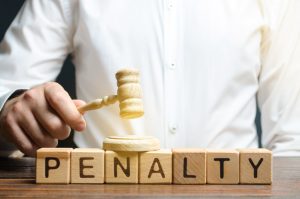As a licensed roofer operating in Florida, you’re likely familiar with property damage claims, particularly claims relating to severe weather events. But it’s not just about wielding a hammer and laying shingles—it’s also about navigating the intricate legalities that underpin these situations. This understanding can be a game-changer, bolstering your professionalism and building trust with your clients.
In this comprehensive guide, we’ll delve into key legal aspects that you need to consider when handling property damage cases. We’ll discuss potential liability, decipher insurance coverage, and examine essential contract terms. So buckle up, and let’s navigate this legal labyrinth together!
Liability: Don’t Slip on the Slope
One of the most critical legal aspects for roofers in property damage cases is understanding your potential liability. When you’re working on a damaged roof, you are dealing with a property owner’s most valuable asset—their home. If additional damage occurs or if the repair is faulty, you could find yourself in a legally precarious situation.
It’s essential to have a well-documented process to record the state of the property before you begin work. Detailed photos and notes can be invaluable in protecting your interests if a dispute arises later. Keep a record of all conversations and agreements, and make sure your clients are aware of any risks associated with the repairs.
Protect yourself further by maintaining robust liability insurance. This insurance can cover damages or injuries that may occur during the course of your work. It’s not just a safety net—it’s a necessity.
Additionally in Florida, it is against the law for contractors to negotiate or adjust an insurance claim.
A contractor may be liable for unlicensed public adjusting by negotiating or effecting the settlement of an insurance claim on behalf of an insured for money, commission, or anything of value without being licensed as a public adjuster.
The unlicensed practice of adjusting insurance claims is a third degree felony as provided by Section 626.8738, Florida Statutes.
Insurance Coverage: The Devil is in the Details
If your company deals with repairs and roof replacements arising from property damage cases, understanding insurance coverage isn’t just beneficial—it’s essential. Your clients will often lean heavily on their homeowner’s insurance to foot the repair bills. As a roofer, you’re uniquely positioned to provide valuable guidance and insights to steer them through the claims process.
Understanding the specifics of a typical homeowner’s insurance policy is your first step. Generally, these policies cover “sudden and accidental” damage, such as that caused by a storm, hurricane, or fallen tree. However, the subtle nuances of insurance often exclude damage resulting from wear and tear or poor maintenance. These distinctions are key to your role. Remember, while you can guide homeowners in the general principles, the interpretation of their policy should be left to licensed insurance professionals.
In your role, encourage your clients to understand the importance of prompt reporting. Most insurance policies have a prompt notice requirement — if this is not complied with a policyholder may have breached the contract and jeopardize coverage. Delay can lead to claim denial, and no homeowner wants to face that prospect. It is smart practice to remind your clients to contact their insurance company if they have any questions relating to insurance or if they notice any damage they believe may be covered by their insurance.
Contracts: Your Legal Shield
The contractual agreement between you and the homeowner is more than just a formality—it’s a legal document that can protect both parties if things go sideways. Here are a few key aspects you need to consider:
Scope of Work: Be as detailed as possible in describing the work that you will do. Include the materials you’ll use, the specific repairs you’ll make, and any other pertinent information. The more precise your contract, the less room there is for misunderstandings later.
Payment Terms: Clearly outline the payment terms, including the total cost, deposit amount, payment schedule, and accepted methods of payment. Be clear about what happens if payments are late or if the homeowner disputes the final invoice.
Dispute Resolution: Although no one wants to think about it, disputes can happen. Include a clause specifying how disputes will be handled, whether through mediation, arbitration, or court proceedings.
Right to Cancel: In Florida, homeowners have a legal right to cancel a contract within a certain period after signing. Make sure this is clearly stated in your contracts.
Direction of Pay: A “Direction to Pay” signed by the policy holder authorizes the insurance company to pay your roofing company directly for the work done to repair the damages to pre-loss condition, removing any potential issues that can occur after a claim settlement check is issued to the policy holder.
Remember, your contract is a legally binding document. Consider seeking legal advice to ensure your contracts are comprehensive and legally sound. We have excellent recommendations for contract lawyers who can assist your business.
Conclusion: Beyond the Shingles
Roofing is an industry that is not just about the shingles, underlayment, or flashing—it’s also about understanding and navigating the complex legal landscape that surrounds property damage cases. By arming yourself with this knowledge, you can better serve your clients, protect your business, and stand out in a competitive market.
So remember, when you’re standing on that rooftop, you’re not just a craftsman—you’re a knowledgeable professional with a wide-ranging skillset. And that’s something to be proud of. Keep learning, keep growing, and keep striving for excellence in all aspects of your work. Your clients, your business, and your industry will be better for it.
If you are a roofer and have questions regarding anything legal as it pertains to insurance or storm restoration, please do not hesitate to give us a call or book a time to speak with us.


